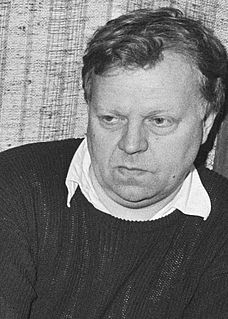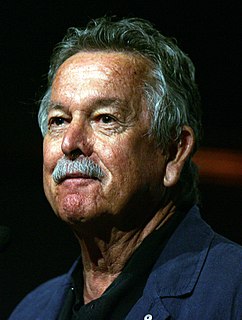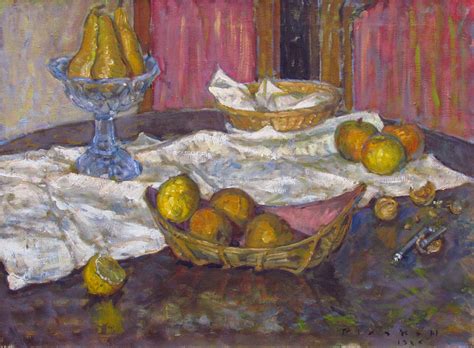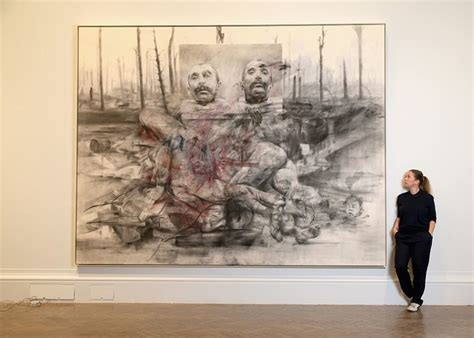A Quote by Jan Dibbets
I start by thinking I'm going to make use of all possibilities without troubling any longer about problems when something starts to be art. I don't make the ETERNAL work of ART, I only give visual information.
Related Quotes
Stop thinking about art works as objects, and start thinking about them as triggers for experiences... That solves a lot of problems ... Art is something that happens, a process, not a quality, and all sorts of things can make it happen ... [W]hat makes a work of art 'good' for you is not something that is already 'inside' it, but something that happens inside you.
What’s next for technology and design? A lot less thinking about technology for technology’s sake, and a lot more thinking about design. Art humanizes technology and makes it understandable. Design is needed to make sense of information overload. It is why art and design will rise in importance during this century as we try to make sense of all the possibilities that digital technology now affords.
Art shouldn't be something that you go quietly into an art gallery and dip your forelock and say 'I have to be very quiet, I'm in here amongst the art.' It's here, art's everywhere. It's how you use your eyes. It's about the enjoyment of visual things. And it's certainly not for any one group of people.
I like the boundaryless potential you get when you make work for a context that is open to interpretation. Thinking about an art context is too claustrophobic, though. I always hope that at least half my audience is not directly related to the art world. I use art as a balancing act. It's a good way of avoiding everyday chores and social obligations.
I go into any movie that's historical fiction thinking, 'OK, I'm here to watch a work of art, something delivering a series of opinions, and if it's a good work of art, these opinions become so deeply embedded in complexity and richness that I won't even be bothered by the opinions. I'll make my own mind up.'
When things get tough, this is what you should do: Make good art. I'm serious. Husband runs off with a politician -- make good art. Leg crushed and then eaten by a mutated boa constrictor -- make good art. IRS on your trail -- make good art. Cat exploded -- make good art. Someone on the Internet thinks what you're doing is stupid or evil or it's all been done before -- make good art.
Take a bunch of little kids to the beach and they all make art. Adults are too stupid to call it art, but it is art. They'll use their imaginations, make drama, make up characters, make pictures in the sand, they'll make up songs that no one's ever heard before. All kids, I think, are creative, but they get it pounded out of them in school.
Forget your ideas about art. Make a shopping list of everything you like about what you've done. Include qualities that you've seen in your life, in the world, and possibly in art that you like. Take this list and make a work that satisfies all of the things on your list without caring if it looks like art.
I'm not anti conceptual art. I don't think painting must be revived, exactly. Art reflects life, and our lives are full of algorithms, so a lot of people are going to want to make art that's like an algorithm. But my language is painting, and painting is the opposite of that. There's something primal about it. It's innate, the need to make marks. That's why, when you're a child, you scribble.







































